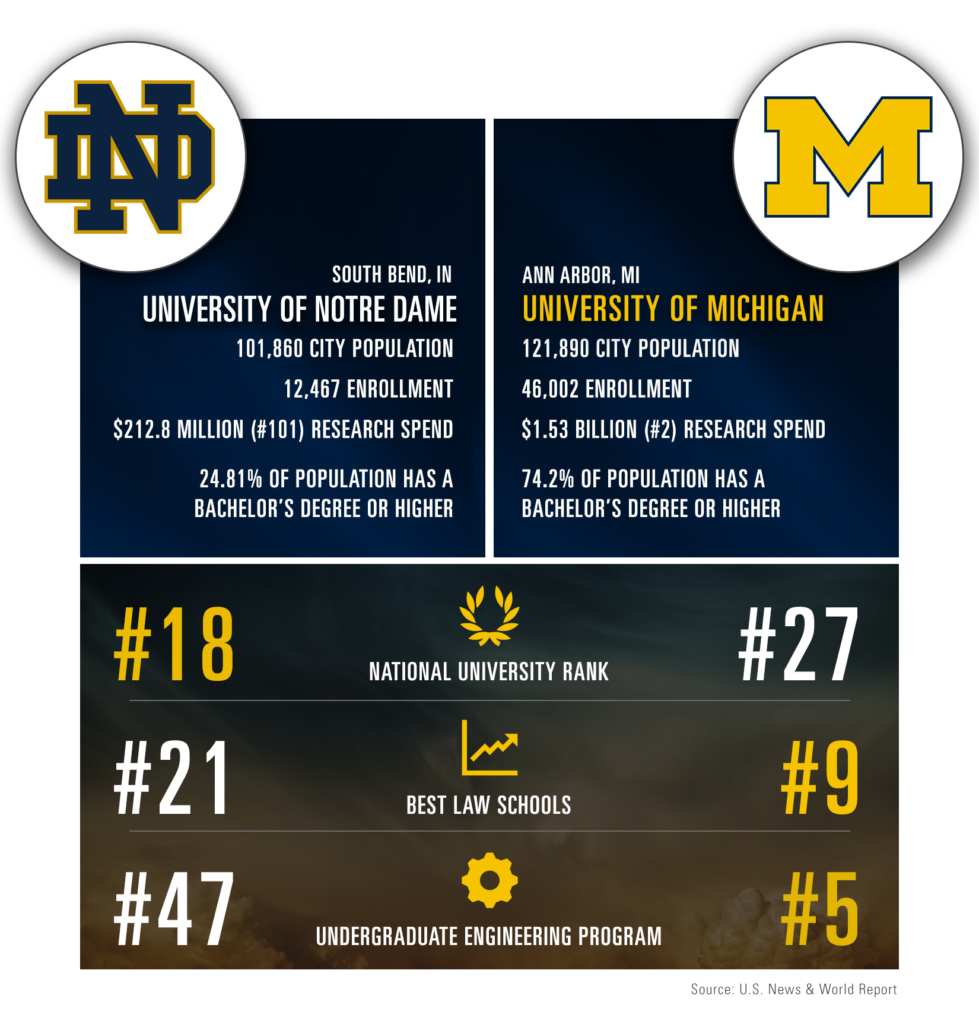
Our football blog series is back for the fourth straight year! We use the football season as an incentive to compare Ann Arbor to cities around the country represented by our U-M football competition. The question is always – how does Ann Arbor compare to other college towns in the US?
Michigan and Notre Dame have a bit of a historic rivalry, as both are mentioned as some of the most storied programs in college football. While Michigan leads the all-time series 24-17, they have something to prove: the Fighting Irish have won the last two match-ups in 2014 and 2018.
While Notre Dame University technically is in Notre Dame, IN, the school is more readily associated with the adjacent South Bend, IN. So, that’s where we’ll focus for our comparison. (It’s not really fair to compare Ann Arbor to a city of 6,000+ that really only encompasses the University).
Ann Arbor’s population of about 121,000 is slightly bigger than South Bend, who has almost 102,000 inhabitants. However, the schools are less comparable in enrollment, with Michigan totaling about 3.5X more students than our South Bend counterparts who are known for their small class sizes. Both schools consistently show up around the top of several university ranking metrics, including US News National University Ranking (U-M at #27, Notre Dame at #18).

Data Dive
Where do we get our numbers? And what do they mean?
- Population comes from the US Census, 2017 Population Estimates. Check out Ann Arbor’s data here.
- Enrollment comes from each university’s website (what they report on enrollment).
- Research spend comes from the National Science Foundation Rankings by Total R&D Expenditures.
- Educational attainment comes from the US Census 2012-2016 American Community Survey 5-Year Estimates. We look specifically at the population over the age of 25, and the highest level attained. Check out Ann Arbor’s data here.
- The rankings come from US News and World Report unless otherwise mentioned.